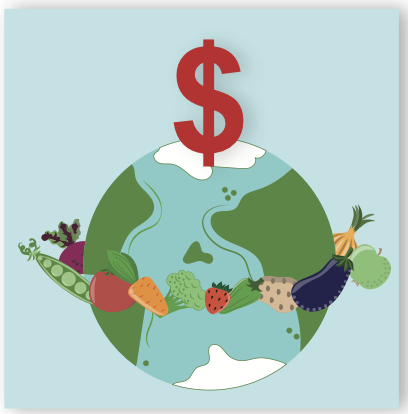Going Gluten-Free Fails to Boost Athletic Performance
Many athletes are going gluten-free in hopes of boosting their performance, even without a diagnosis of celiac disease that requires eliminating gluten. A small but well-designed Australian study finds theyre likely to be disappointed.
Sugar Warnings Getting Through
Americans may be getting the message about cutting down on added sugars, a focus of the latest Dietary Guidelines for Americans. A new Reuters/Ipsos poll of 1,883 US adults reports that 58% say they tried to limit sugar in their diets in the past 30 days. While there's no previous such poll to compare to, that number does exceed those trying to cut down on calories, sodium, fats, cholesterol or carbohydrates. Another sign: Google Trends…
“Healthy” Viewed as “Less Filling”
Mistaken perceptions that healthier foods are also "less filling" might cause consumers to overeat such foods, even when calorie counts are clearly displayed.
New Diabetes Cases Down Again
The number of Americans newly diagnosed with diabetes fell for the fifth straight year in 2014, according to new data from the Centers for Disease Control and Prevention.
Three Veggies Account for Nearly 60% of Supply
When Americans are told, "Eat your vegetables," we hear, "Eat white potatoes, tomatoes and lettuce." According to a recent USDA report, those three vegetables account for almost 60% of the veggies and legumes available for consumption.
Dietitians Forecast Healthy-Eating Trends
Seeds and avocados will steal some of the healthy-eating spotlight from kale in 2016, according to a survey of registered dietitian nutritionists (RDNs).
Foodborne Illness Strikes 1 in 10
Globally, foodborne illness strikes almost 1 in 10 people each year, according to a new report from the World Health Organization. The report looked at 31 different causes of foodborne disease, such as salmonella, E. coli and campylobacter as well as foodborne cholera and typhoid.
Optimistic Heart Patients Fare Better
An optimistic attitude may help you recover from a heart attack or angina. A feeling of gratitude, however? Not so much.
Eating at Home Linked to Lower Diabetes Risk
Home cooking may not only stir warm and cozy memories of familiar foods coming from the kitchen - it could also be healthier for you than the modern trend of takeout, fast food and restaurant meals.
FDA Seeks Comments on “Natural” Labeling
You may think the term "natural" on a food label connotes all kinds of positive attributes. To the US Food and Drug Administration, however, "natural" officially means almost nothing.

























